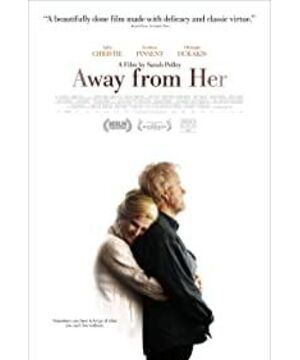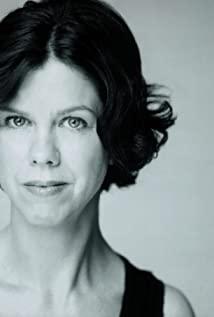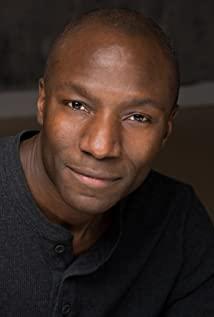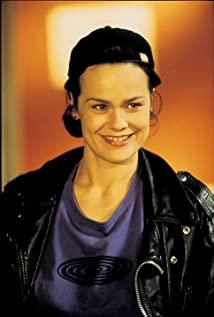As people get older day by day, their concepts will change accordingly. Twenty years ago, I could hardly imagine what a woman would look like when she was 30 years old. When women are placed on the periodic table, they should be counted among the elements with the shortest half-lives in the world. After 20 years, I began to think that the charm of a woman has nothing to do with age. You can be beautiful in your 60s or 70s.
If it's Julie Christie, it's even more different. She was only in her 20s when she starred in "Doctor Zhivago", but she has been able to explain most of the life of a complex woman like Lana in the midst of historical changes. Christie is 66 years old and still stunningly elegant. She played Fiona, an elderly woman suffering from Alzheimer's disease and progressively losing her memory, in the Canadian film "Stay Away from Her." All styles of media focus on capturing the attention of young people, and stories from older people are hard to come by. Who would be interested in photographing Alzheimer's subjects? Canadian female director Sarah Polley was only 28 years old, and she wrote and directed the film based on Alice Munro's short story.
The symptoms of Alzheimer's patients are short-term memory loss, but long-term memory is relatively stable. Specifically for Fiona, the part of the memory about her husband Grant's love and caring in recent years is relatively weakened, and an infidelity decades ago is vivid. After Fiona became ill, the two made a joint decision to place her in a fully-equipped nursing home. This is the beginning of staying away from her. By rules and regulations, Grant was not allowed to visit Fiona for the first month in the nursing home. The couple have lived together for 40 years, rarely separated for more than a month, but now they have to face the test of reality. Their farewell ceremony was simple: make love.
Director Sarah Polley, so young, chose to tell the story at a relatively slow and unchanging pace. The narrative at the beginning of the film is nothing special, and my confidence in the film did not build until after this farewell scene, and Sarah Polley controlled the film's progress in a fairly mature way. I know that through this film, the audience has the opportunity to enter the world of the old man and discover many things that were not in the original impression. Like young people, for example, older people actually have active emotional lives.
Even when memories are lost and the world begins to dim, people's emotional needs are still strong. For Grant, his wife's pursuit of emotion is not necessarily a particularly happy thing. More than a month later, when Grant had the opportunity to visit the nursing home, Fiona was already inseparable from another patient, and his sketch was pasted on his wife's bedside.
A marriage that had been beautiful for decades and only slightly flawed has completely disintegrated at this time. Even if the body is still healthy and the feelings are not broken, pure mental aging is enough to destroy everything. Grant's reaction was quite touching. At first, he couldn't accept his wife's attachment to others. After understanding more about the lives of Alzheimer's patients, he began to promote Fiona's closeness to his hemiplegia patients.
The film unfolds from Grant's point of view, as the audience follows him on a journey between the world of normal people and the world of Alzheimer's patients. Julie Christie's performance - her smile, her gestures - often induce disorientation in the audience. I will ask, does such a woman really lose her memory? Like Grant, I'm not 100% sure that Alzheimer's caused Fiona's empathy, or that Fiona was using it to punish Grant for a young infidelity?
There are also some moderating characters and plots in the movie so that the story isn't too heavy, which is clever. In the hall of the nursing home, an old man can follow the TV and fully explain the sports game. It's hard to believe that he also has Alzheimer's. The audience will laugh, but after laughing, the camera may appear blurry. The focus of the picture is not lost, but the eyes of the audience may be slightly wet.
Even in the American independent film industry, very few people try this genre. A few lines are arranged in "Stay Away from Her" to express Fiona's views on American cinema. She rejects American films, saying they are almost trash. I understand her point of view, and most of the works do. But on the other hand, small-production art films—whether from Europe or Canada—are largely supported by the American film market. The Canadian film grossed $6.7 million globally that year, with the U.S. market alone accounting for nearly 70 percent.
View more about Away from Her reviews











